Some must-try dishes include Banh cuon Cao Bang (Cao Bang Steamed Rice Rolls), Vit quay Lang Son (Lang Son roasted duck), Canh ca Thai Binh (fish soup of Thai Binh Province), Bun bo Hue (Hue Noodle Soup with Beef), Sup luon Nghe An (Nghe An Eel Soup), Nem nuong Nha Trang (grilled pork rolls of Nha Trang City), or Com tam Sai Gon (Sai Gon Steamed Broken Rice).
If you haven’t had an occasion to visit different regions across the S-shaped strip of land, why not travel through the culinary path? Right in the capital city, there are countless eateries serving regional specialties, whose flavors are fairly close to the originals.
Banh cuon Cao Bang
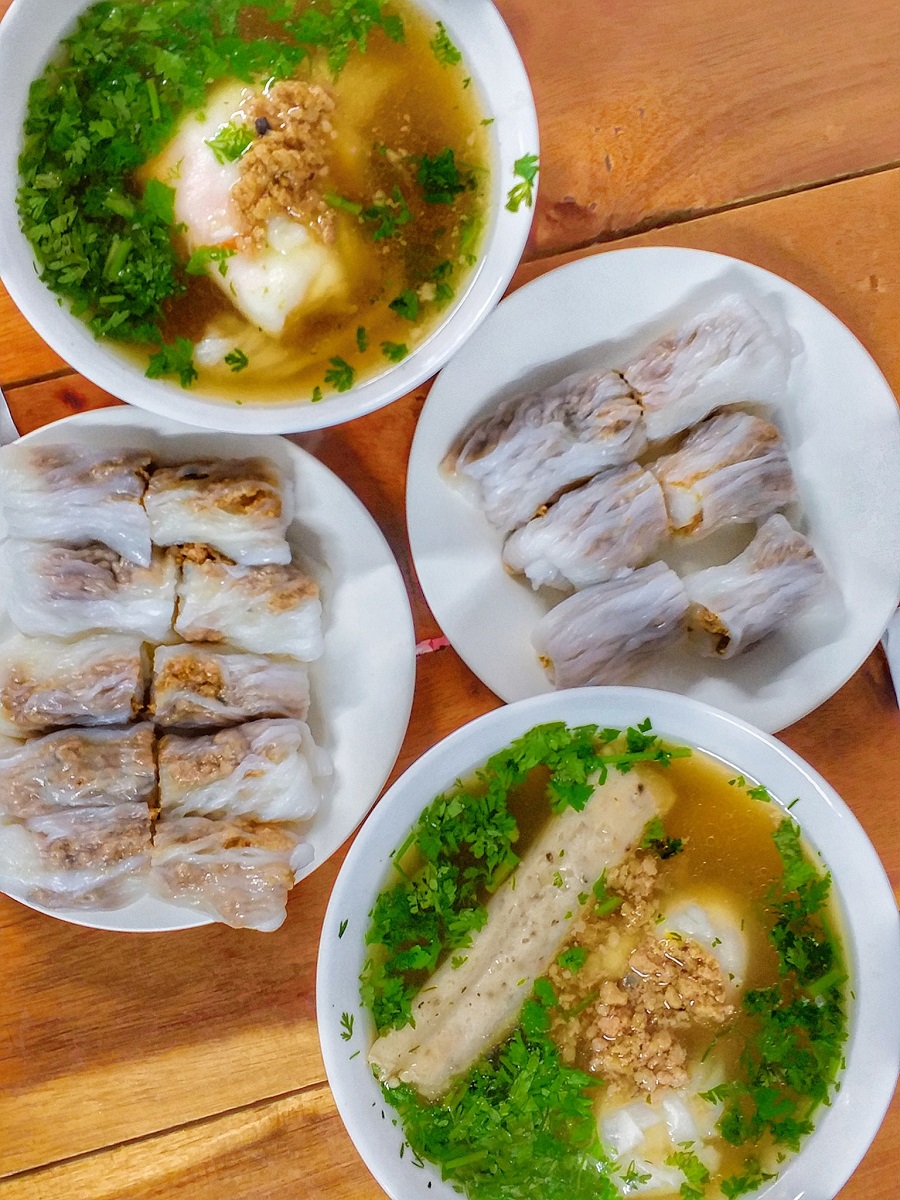
Regarding the recipe, there is basically no distinction between Cao Bang’s Banh cuon and those from northern localities like Thanh Tri District in Hanoi, Phu Ly City in Ha Nam Province, Haiphong City, or Nam Dinh Province.
What makes the former standout is the accompanying soup bowl. Instead of dipping these rolls in fish sauce, the people of the northeast region make their own style of eating Banh cuon with hot bone broth, Gio lua or Vietnamese pork bologna, and lots of coriander.
In Hanoi, there are a number of restaurants whose Cao Bang-style rolls are highly praised by gourmets, including ‘Banh Cuon Cao Bang’ at Huynh Thuc Khang Street in Dong Da Disttrict and ‘Banh Cuon Ba Hoa’ at Ngoc Khanh Street in Ba Dinh Disttrict.
Vit quay Lang Son
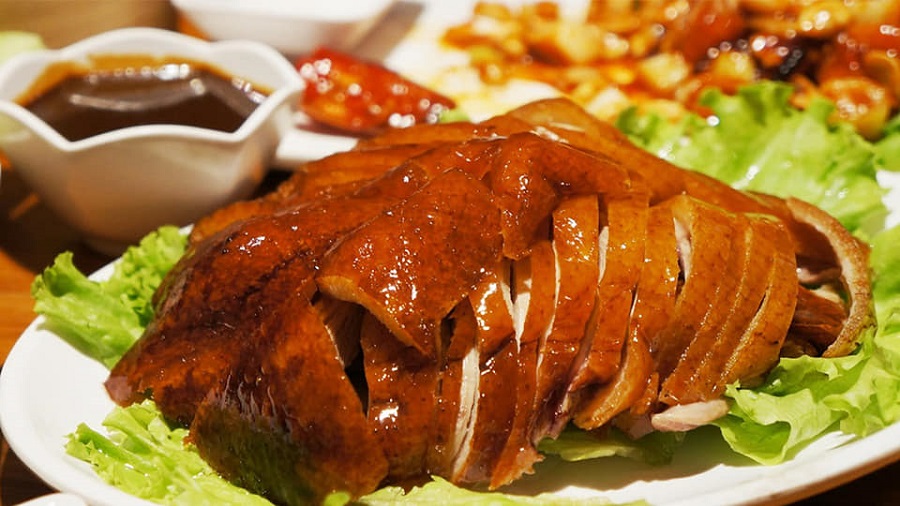
Mentioning Lang Son Province, besides landmarks like Ky Lua Street or Tam Thanh Pagoda, many people will instantly remember Vit quay with Clausena indica leaves, for which the recipe is complicated and difficult to follow.
However, some people from Lang Son mastering the recipe opened restaurants in Hanoi, thereby bringing this dish closer to both Hanoians and tourists. Now you can enjoy the specialty at ‘Vit Quay Quan Lang’ at Nguyen Van Loc Street in Ha Dong District, ‘Vit Quay Lang Son’ at An Duong Street in Tay Ho District or a stall in Tran Khat Chan Street in Hai Ba Trung District.
Canh ca Thai Binh
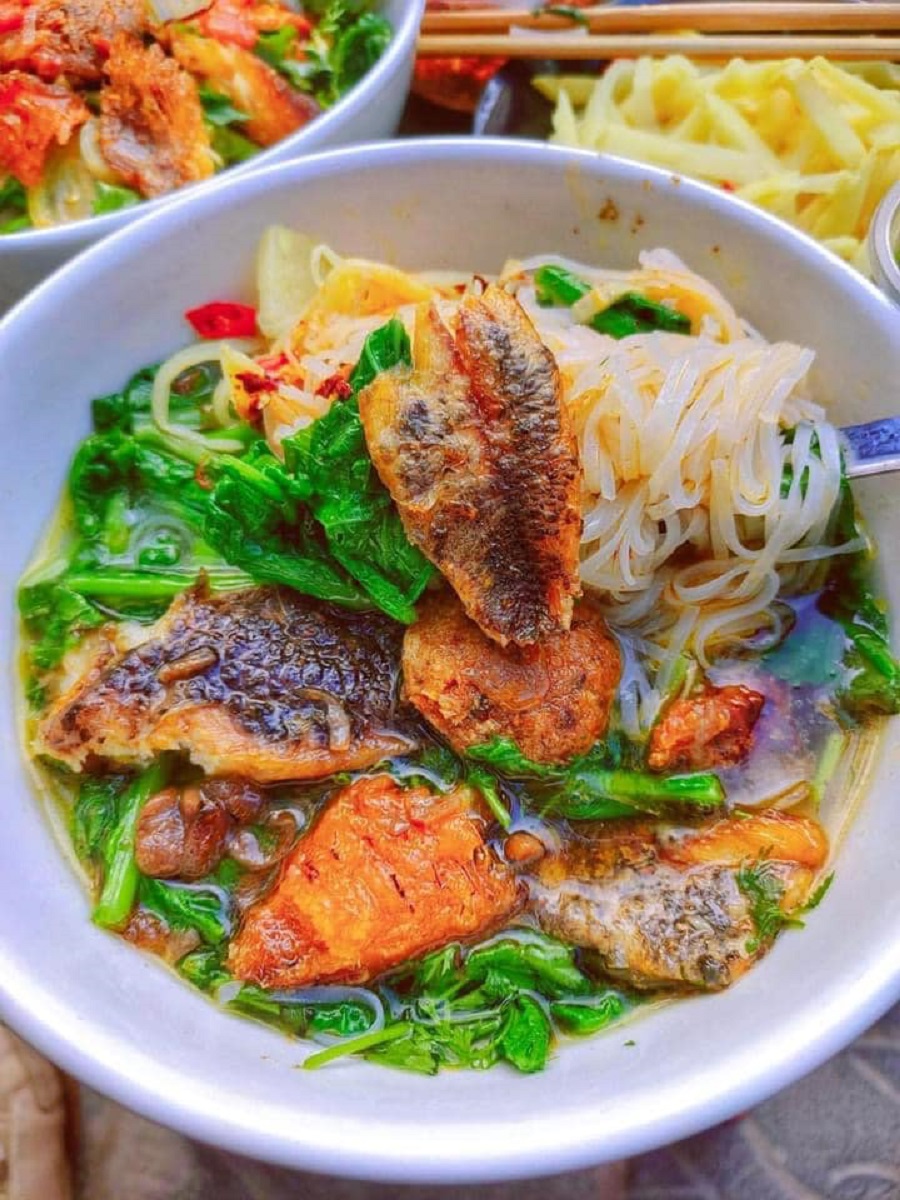
After tasting Canh ca Thai Binh - often served with Bun or rice vermicelli, many diners were enamored with the mild stock and the richly sweet fish.
To make this specialty, people of the rice-producing province use only freshwater fish, with the bones thoroughly pounded and simmered to get the stock. Because all the steps require the cook’s meticulousness, for many foodies, searching for the fish soup is like looking for a needle in a haystack.
Two places you can try are ‘Canh Bun Ca Thai Binh’ at Hang Bai Street in Hoan Kiem District and ‘Bun Ca Thai Binh’ at Thai Thinh Street in Dong Da District.
Bun bo Hue, or beef noodle soup of Hue City
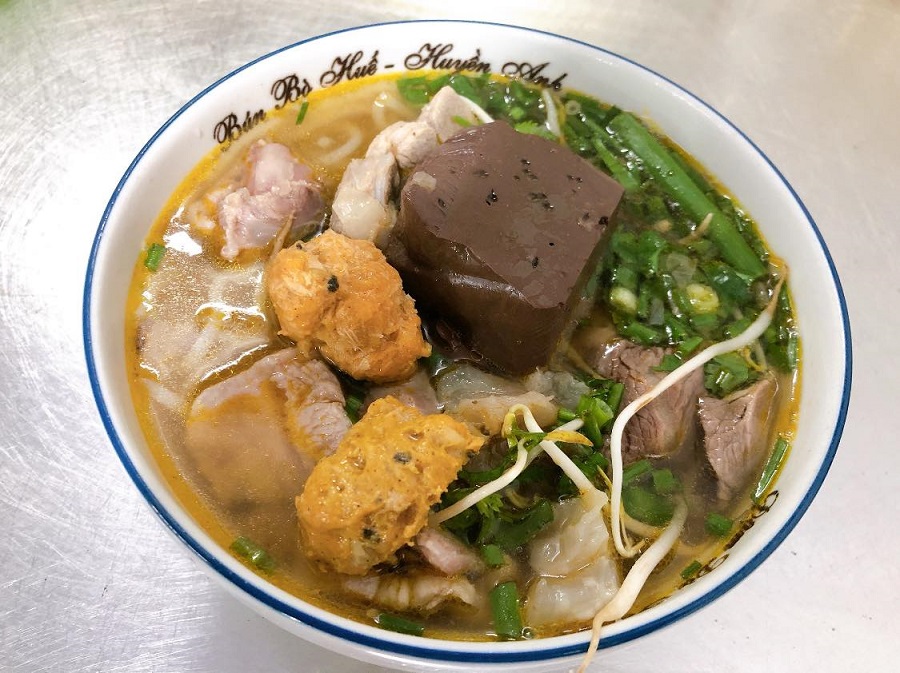
Around Hanoi, shops selling Bun bo Hue are almost as many as familiar noodle stalls. However, a lot of chefs have deliberately tweaked the dish a bit to suit Hanoian’s taste.
That’s why, if you are in love with the authentic flavor, the following shops are recommended: ‘Bun Bo Hue An Cuu’ at Doi Can Street in Ba Dinh District, ‘Bun Bo Hue Ut My’ at Trung Van Street in Nam Tu Liem District, ‘Bun Bo Hue O Uong’ at Lac Long Quan Street in Tay Ho District, and ‘Bun Bo Hue O Hoa’ at Dong Tac Street in Dong Da District.
Eel dishes from Nghe An Province
Only using eel as the main ingredient, Nghe An people have cleverly created a variety of dishes such as Mien luon or eel vermicelli, Sup luon or eel soup, or braised eel.
Nghe An people in Hanoi and those fond of these eel dishes must drop by ‘Quan Luon Xu Nghe’ at Hoang Ngoc Phach Street in Dong Da District or ‘Sup Luon Nghe An’ at 11 Hang Chinh Street in Hoan Kiem District.
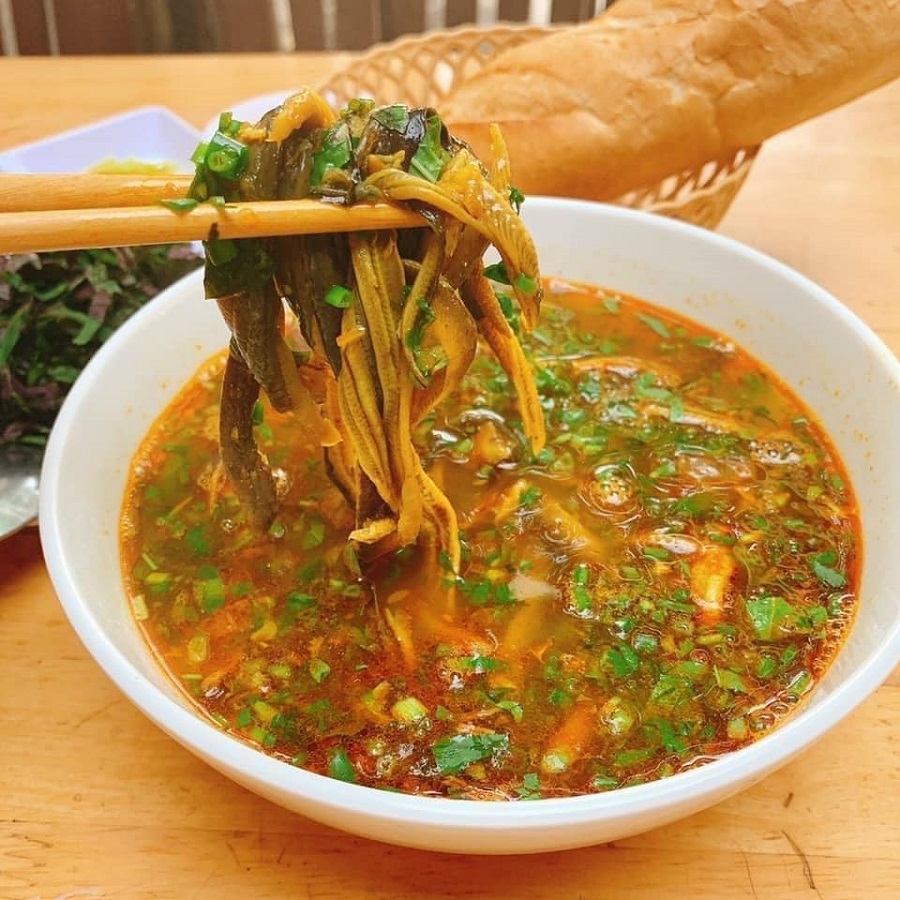
Banh hoi heo quay or rice vermicelli cake with roast pork, Com ga Hoi An or steamed rice with chicken shreds of Hoi An City.
Both treats and main dishes of Danang City and Quang Nam Province are quite popular among tourists. Some representatives include Banh hoi heo quay, Com ga Hoi An, Mi Quang or Quang noodles, Banh trang cuon thit heo or rice paper rolls with pork.
Some restaurants in Hanoi specializing in Danang - Hoi An food are ‘Koun’ at Hoang Quoc Viet Street in Bac Tu Liem District, ‘Ngoc Nu Quan’ at Pham Ngoc Thach Street and ‘Bun Mam Nem Ba Tam’ Lang Ha Street in Dong Da District.
Nem nuong Nha Trang
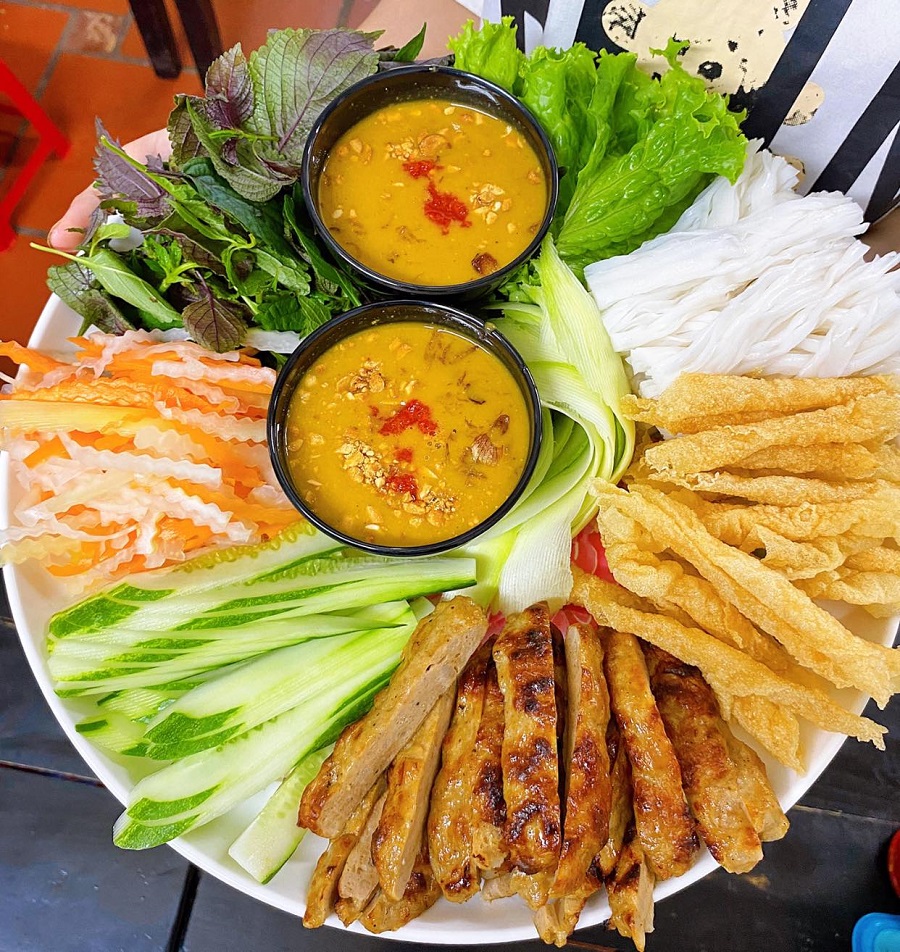
Nem nuong Nha Trang has become really familiar to food devotees in the capital. The specialty is often eaten as a treat shared with friends, but now it is also picked for lunch by some office workers.
One Nem nuong serving is nutritious enough with herbs, raw vegetables, carrots, radishes and grilled pork, so the dish is suitable for sisters who want to stay in shape without fasting.
If you want to try quality Nem nuong Nha Trang at affordable prices, the best options are the following: ‘Nem Nuong Oishi’ at No. 15, alley 158 Nguyen Khanh Toan Street in Cau Giay District, ‘Hat 2 O’ at 81 Tran Phu Street in Ha Dong District, ‘Hai Hien’at No. 65, alley 640 Nguyen Van Cu Street in Long Bien District, ‘Thuy Xeo’ at 167 Doi Can Street in Ba Dinh District, and at the gate of Me Tri Ha urban area in Nam Tu Liem District.
Bun quay Phu Quoc
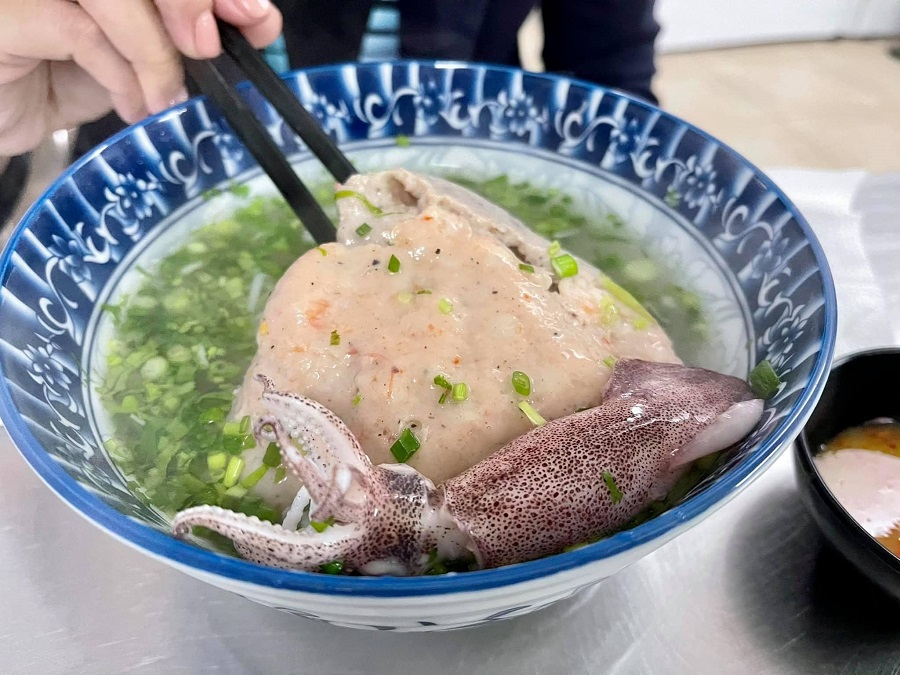
Having been a big fish in a small pond on the stunning Phu Quoc Island for a long time only recently has Bun quay arrived in the capital city. According to the first diners here, the ingredients used by Bun quay stalls in Hanoi are quite similar to the original, however, the flavors still need to improve for more harmony.
Two of the restaurants whose fresh seafood noodle soups are closest to the Phu Quoc flavor are ‘Bun Quay Co Ba’ at Mai Hac De Street in Hai Ba Trung District and ‘Bun Quay Sau Cho’ at Van Cao Street in Ba Dinh District.
Com tam Sai Gon
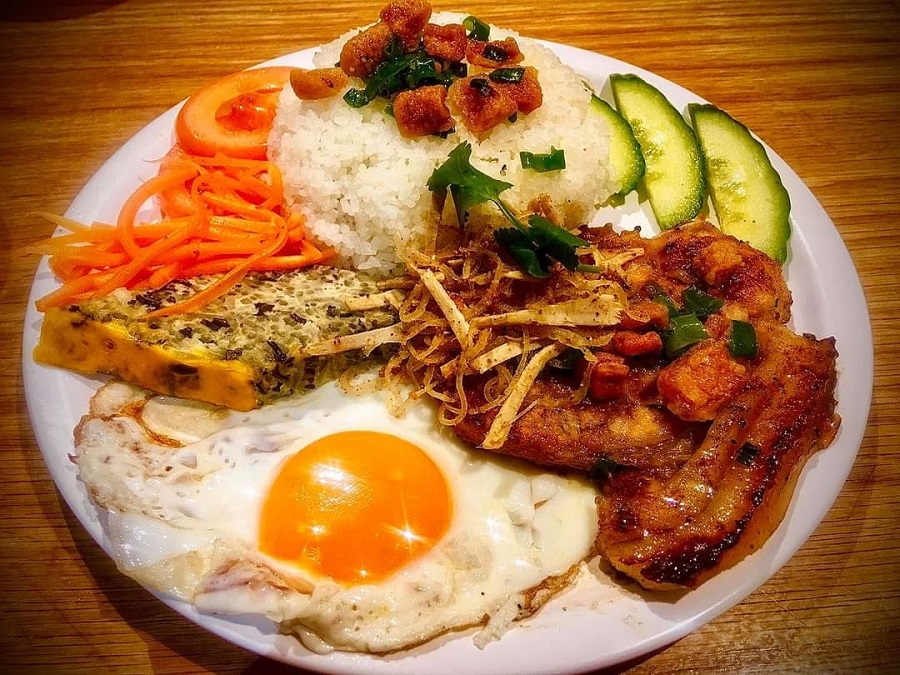
While broken rice shops in Ho Chi Minh City, formerly Saigon, are usually open during all 3 meals - breakfast, lunch, and dinner, most of those in Hanoi only sell at noon, and their broken rice is less sweet yet saltier to suit northerners’ taste better.
Therefore, if you want to find the original taste of Com tam Sai Gon, you should go to ‘Com Tam 36’ at Phung Hung Street in Hoan Kiem District and ‘Bep Com Tam’ at Thai Ha Street in Dong Da District.
Of course, if you want to taste the authentic flavor of any specialty, it would be best to come to its place of origin and enjoy the dish in a local atmosphere.
However, the recommendations above are still helpful if you are craving unique tastes yet unable to make a long trip right away.
